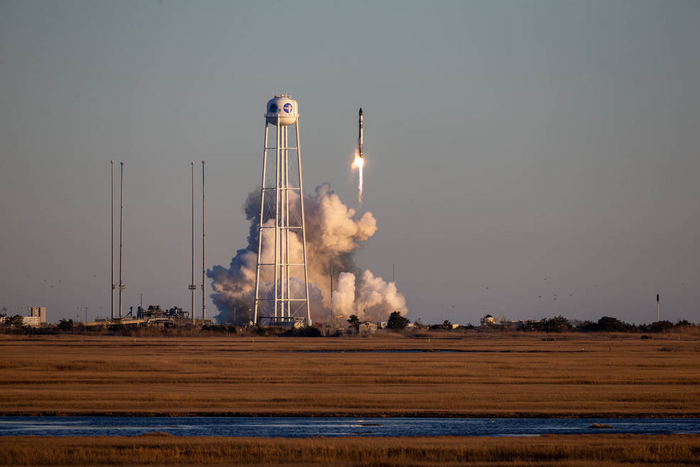NASA’s Wallops Flight Facility supported the successful launch of a Rocket Lab Electron rocket at 6:39 p.m. EDT, Thursday, March 16, from Virginia’s Mid-Atlantic Regional Spaceport on Wallops Island, Virginia.

Credit: Credits: NASA Wallops/Patrick Black
NASA’s Wallops Flight Facility supported the successful launch of a Rocket Lab Electron rocket at 6:39 p.m. EDT, Thursday, March 16, from Virginia’s Mid-Atlantic Regional Spaceport on Wallops Island, Virginia.
The mission, named “Stronger Together,” carried two, 100-kilogram commercial satellites to low-Earth orbit for Capella Space.
“I’m extremely proud of the NASA team that helped ensure a safe and successful launch operation today,” said David L. Pierce, Wallops Flight Facility director. “Today’s launch builds on decades of work supporting the commercial launch industry, and we’re proud to have Rocket Lab as a mission partner here in the Wallops complex.”
This was the second Electron launch from Wallops, the first occurring Jan. 24, 2023. The launch was enabled by NASA’s Autonomous Flight Termination Unit (NAFTU) software, which became fully certified March 3. Rocket Lab’s autonomous flight termination system is derived from the NASA-developed NAFTU software.
“The certification of NAFTU is a major milestone for Wallops and our commercial partners,” said Pierce. “NAFTU provides a vital safety capability for launch providers and ensures public safety during operations.”
NAFTU is a revolutionary autonomous flight safety system that provides real-time monitoring and control of a launch vehicle’s flight termination system. While other, proprietary autonomous flight termination systems are in use today, NAFTU is different in that it was designed to be used by any launch provider at all U.S. launch ranges to ensure public safety during launch operations. To date, 18 companies have requested the NAFTU software through NASA’s technology transfer process. Rocket Lab was among the first applicants for the software, enabling their launches from Wallops.
Wallops, in collaboration with NASA Headquarters in Washington, NASA’s Kennedy Space Center in Florida, the U.S. Air Force and Space Force, as well as the Federal Aviation Administration, all collaborated on the development and final certification of NAFTU.



